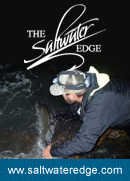posted today on Charlie’s Witek Blog One Angler Voyage
http://oneanglersvoyage.blogspot.com/
“GAMEFISH”: CONSERVATION OR CON
The Atlantic States Marine Fisheries Commission’s Striped Bass Management Board met today, and to no one’s surprise, approved “conservation equivalency” measures that are likely to frustrate the goals of the management plan and assure that the stock becomes overfished at some time this year—if it isn’t already.
Members of the Management Board recognized the flaws in conservation equivalency throughout the discussion, but approved the measures anyway. That included smug representatives of the State of New Jersey, a so-called “gamefish” state that outlawed its commercial fishery but kept its commercial quota, and could use it to increasethe “commercial” portion of New Jersey’s striped bass harvest by over 200,000 pounds this year—when we’re supposed to cut back.
To hear the “gamefish” advocates tell it, outlawing commercial harvest and sale is a sound conservation measure, that would assure the health of the resource well into the future.
But when commercial fishermen tell the same tale, they condemn “gamefish” status as nothing more than a “fish grab,” a naked effort to reallocate all of the striped bass resource to the recreational sector, garbed in a cloak of tattered virtue that anglers call “conservation.”
So who is right?
As an angler, I’m inclined to favor the former argument, but as someone who spends a lot of time working for effective fisheries management—and who tries to tell the truth in these columns I write—I have to admit that both sides go a little too far.
Start with just two basic truths.
ONE: The easiest way to rebuild an overfished stock is to kill fewer fish.
TWO: A fish doesn’t care who kills it; a striped bass (or anything else) is just as dead when killed by an angler as it is when killed by a commercial fisherman.
So shutting down commercial fisheries could lead to fewer fish being killed. So could shutting down recreational fisheries—or letting both recreational and commercial fisheries continue, while placing greater constraints on both of their harvests.
“Gamefish” has proven effective offshore, by ending the commercial harvest of Atlantic-coast sailfish and marlin, and it’s difficult to argue that it didn’t play a big role in the recovery of the Gulf of Mexico’s red drum population.
On the other hand, when it comes to striped bass, “gamefish” has a notably checkered record.
In some states, such as Maine and New Hampshire, it works. When those states closed their commercial striped bass fisheries, they didn’t reallocate their commercial quota to anglers, but instead allowed the fish “saved” from harvest to remain a part of the spawning stock biomass. That truly promotes conservation.
On the other hand, in Connecticut and New Jersey, “gamefish” doesn’t look like conservation at all.
New Jersey started the ball rolling many years ago when it initiated it’s “bonus fish” program shortly after ending the state’s commercial fishery. That program reallocated the state’s commercial quota to the recreational sector, provided that anglers participating in the program buy the requisite “bonus tag.”
The supposed logic behind the program was the sort of warped thinking that you often hear coming out of the Garden State’s fisheries managers—they had to create a mechanism that allowed local anglers to kill “New Jersey’s” striped bass—which represent the state’s commercial bass quota—from being transferred to and killed by commercial fishermen in other jurisdictions.
For those old enough to remember the Vietnam War, it was akin to the argument that “We had to destroy the village in order to save it.”
And the Jersey boys will tell you that it’s good conservation.
Of course, they won’t tell you that ASMFC’s striped bass management plan assigns each state a commercial quota based on its historical landings, and does not permit the transfer of quota between states. That would ruin the narrative, and anyway, scare tactics work better…
If they stuck just to the facts, folks might believe that the real motivation behind New Jersey’s “gamefish” law wasn’t conservation at all, and that it was merely a ploy to let New Jersey anglers kill some more stripers. And that wouldn’t look good in the papers at all…
Connecticut, on the other hand, eased into its misuse of “gamefish” far more slowly.
I think that it may have been the first “gamefish” state on the coast, adopting the measure back in the ‘50s. I know that I grew up in that state, and never recall at time when selling striped bass was legal.
Of course, that didn’t stop the “regulars” from selling their fish. There was a big seafood restaurant in the middle of Cos Cob where they showed up each morning, lining up at the kitchen door to sell the night’s catch before heading off to their day jobs; the place was notorious for buying poached fish, but in all of the time that I lived there, the law never once came around.
And there were plenty of country clubs, markets and such would gladly fence your illegal bass. There was at least one marina in Stamford that, for a few dollars, would actually ship your illegal bass to the Fulton Fish Market for you. Fulton was a “family” business back then, that paid folks in cash and didn’t keep perfect records, which pleased everyone at the time.
In those days, there was a 16-inch size limit and no bag limit at all, so an awful lot of “gamefish” were sold. By comparison, Connecticut’s current rules, which convert the state’s commercial quota into a “voucher” program that let anglers keep a total of 3,018 bass, with a size limit of just 22 inches, probably look pretty benign.
But at least in years past, the state tried to conserve a few fish. Today, its regulations encourage anglers to kill the entire commercial quota, making Connecticut’s “gamefish” law a sham effort at conservation.
“Gamefish” for billfish works because regulations governing anglers catch are actually far more restrictive today than they were when the sale of Atlantic-coast sailfish and marlin was outlawed.
“Gamefish” for Gulf red drum is also effective, because no one—including recreational fishermen—can kill the big spawners when they school up in the EEZ, where they spend most of their time.
But when we talk about “gamefish” being the striped bass’ salvation, we must keep Connecticut and New Jersey in mind. There’s not much salvation to be found in their waters…
Close to a decade ago, Pat Murray, then the Vice President (and currently the President) of the Coastal Conservation Association summed it all up in an elegant and eloquent little essay that he called “The Last Fish,”where he wrote
“It has often been said that commercial fishermen want to catch the last fish. But are we recreational fishermen trying to stop them simply because we want to catch the last fish?”
That really gets to the heart of the “gamefish” debate.
Ending the commercial harvest of striped bass would help the stock, IF—and only IF—the fish saved from commercial exploitation are “reinvested” into the stock, to reduce fishing mortality and allow more older and larger—and more fecund—striped bass to remain a part of the spawning stock biomass.
If we merely turn the bass “saved” from commercial harvest into “trophy fish,” “bonus fish,” “voucher” fish or anything else that can be legally killed, then “gamefish” status has no conservation value at all, and becomes just a con used to justify snatching fish from the commercials and giving them to the anglers to kill.
So let’s try to be honest.
There might be economic and policy arguments that justify reallocating the kill.
But if the kill’s only reallocated, and not materially reduced, it’s not, in any way, conservation.













I’m from NJ and I am a surfcaster. I also only keep & eat 1 or 2 bass a season. The key in my opinion is education. Are the subscribers to SCJ or Angler’s Voyage really the guys going out and killing 2 plus a bonus? I seriously doubt it. So we just have to keep getting the word out for CPR. It’s clear now that we can’t rely on the money grubbing politicians to help us out.
↓I understand the point Charles is making but cannot agree with premise that NJ/CT should be used as “examples” of what happens when good ideas get hijacked by idiots and self-serving interests
↓I think better example is to look down to Fl and see what they accomplished with gamefish legislation with snook, redfish , tarpon.
I laugh every time i hear a term “redneck” . I only wish I lived amongst rednecks who cared more about the health of a species and future of our natural resources.
Zeno–
I think that you’re making my point for me. In Florida, you may take ONE redfish, and only those that fall in a fairly narrow slot. You may take ONE snook in an even narrower slot. And to keep a tarpon, you have to get one of a limited number of permits–which cost, I think, about $50 each–to keep one; without the permit, you’re not even allowed to lift a bigger tarpon out of the water for photos–you have to leave it in the water and lean over the side to remove the hook.
THAT’s why the Florida gamefish laws work–they are accompanied by real restrictions on anglers. Because the bottom line is that you have to kill fewer fish if you want to conserve them–and Florida is doing just that. Here in the Northeast, the for-hires still promote a meat culture that frustrates conservation efforts. If all states had a 1-fish bag limit, and a reasonable minimum size–say, 32 or 34 or 36 inches–then gamefish might really do some good.
↓A) I think that signs explaining catch limits and size limits should be posted in spanish, Chinese, japanese, korean, and mexican. I think the non-citizen guests in this fishery need to be patiently educated to respect the law. Then latter on if they become US citizens its that much better for the nation as a whole. I also think that there should be a 800- hot line where responsible recreational fisherman can callin and report a bunch of disrespectful law breakers and then these bad apples should be fined… “THERE IS NO LAW UNLESS IT IS ENFORCED”… I think this procedure will help to “educate” the masses… and leave something alive for future generations…
B) As for wise guys who sell their catch to restaurants and wholesalers here is where huge fines and hotlines will truly deter those who disrespect for the law…. we must all do our part to make this work… I live in a part of the world where the fishing stocks are decimated and let me tell you its an ugly site… the impact to the economy is huge but the heartbreak to those who love to fish is indescribable. 🙁
↓I have been saying that florida really has it together with conservation efforts,i wish we could follow that I don’t know why its so difficult,every year fluke, blackfish and seabass regs are changed?
↓As CW and ZR point out. What NJ and CT have is not gamefish status. What Fla has is gamefish status. Simple enough. What Fla does not have is ASMFC, the various states advisory councils and enforcement, and that’s why it works down there.
↓Joe GoNun–
Florida is actually a member of ASMFC, although it only affects the state’s Atlantic coast fisheries, and not too many of them. Of the species that we’re discussing, red drum is the only one impacted. The difference is that Florida doesn’t try to play games with the regulations and attempt to find ways to kill more fish than the management plan contemplated. When the red drum plan called for 40% escapement, Florida buckled down and figured out what it needed to do to achieve that goal, instead of trying to find a way to say that 20% escapement was really equivalent to 40% if you squinted your eyes and held the paper the right way…
↓Unfortunately, I’m afraid the issue won’t really be collectively and effectively addressed until the fishery collapses in total and there is NO OTHER CHOICE. That said, you cannot begin to compare the commercial damage to the stocks ( charter boats included ) to the recreational fisherman, although I agree all fishing efforts need to be addressed. Go fishing for tuna behind a dragger one day and report back on what you see when they pull the nets. Nuff said !!! As regards Florida, they are so proactive, I believe, because they recognize the huge economic impact on their state if they don’t protect these species from decimation. I keep a flats skiff down in the Keys at my in-laws and fish many weeks each year. I will say that never once have I ever been pulled over to have my skiff checked for illegal catch, appropriate hooks, license or anything. I regularly see new photos of Tarpon held out of the water pulled over the gunnels for a money shot. I don’t really have a problem with that if exercising care but my point is what good are regs. if they’re not being enforced. Up here, we’ve all seen our fair share of shorts being kept regardless of race. Speaking up has done little good and how can one DEC officer covering a huge area do anything, especially during the height of deer season.
↓The idea of “gamefish” conservation can ONLY work when there is one governing and protecting body making and enforcing the regulations. This seems so simple, that I can never understand why it hasn’t gained more acceptance. It works in FL because those fish stay in FL water. If they want to keep their fishing stocks healthy, they regulate and enforce it. Same with sailfish, tuna, etc. that are regulated in federal water. (While these are not gamefish they are regulated in a way that relates to the most valuable use of the resource)
↓Each state should not be allowed to make their own rules for a fish stock that travels across multiple state waters! They can have input but they cannot be allowed to make their own rules…the bass belong to dare I say “the nation” not the state. It’s akin to what happened with migratory ducks that were nearly hunted to extinction by each states regulation. When we have states making their own rules there is an innate desire to get as much as they can so the next state doesn’t take what’s “theirs”. Why would NJ give “its” fish to the next state to take?
Gamefish status comes in here not as conservation, necessary, but in my opinion as our right to the resource. Why does someone get to make money off of a resource that now is accessible and much more valuable to every person that has the interest to pursue it?! The fishery is not what it was when people made their living catching striped bass. It’s plain and simple that they are now much more to valuable, and protected, by the recreational angler.
agree
↓MRisser i am beginning to agree with this point of view. ASMFC has failed at conserving these fish.
↓Not everyone in New Jersey are frothing at the mouth to Kill all those fish. My son and I will only be taking one per trip with a 32″ min and no bonus tags. Quite a few of the people I know and fish with wanted one over 36″ and no bonus
↓Your mention of the success of Gamefish Status in Gulf Coast States with respect to redfish is certainly true. What you forgot to mention was the addition of speckled trout and snook to the success. I also see no reason why the commercial catch should be allocated to recreationals. Is this something that is written in stone? Nothing else will ever work when we are driven by ASMFC.
↓Its the person booking that charter with no clue about the species that needs to be reached. That one person handed a rod with a 30lb bass on it fishing one day a year probably kills more fish then most of us reading this.
↓